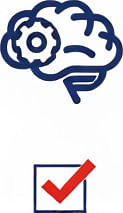Effective Reward Systems for Boosting ADHD Productivity
 by Lilian Nienow
by Lilian Nienow
Reward systems offer a practical way to enhance productivity for those with ADHD by making tasks more engaging and motivating. Learn simple strategies to implement rewards that help maintain focus and achieve goals in daily life.

Many people with ADHD face challenges in maintaining focus and completing tasks. Creating reward systems can be a helpful approach to build momentum and encourage progress. These systems work by associating positive outcomes with effort, making routines more appealing.
One key benefit of reward systems is their ability to break down overwhelming activities into manageable steps. For instance, if you have ADHD and struggle with household chores, setting up a system where you earn a small treat after finishing a task can make the process less intimidating. This method supports building habits that stick over time.
To start, identify activities that often feel difficult. Begin with something simple, like organizing your workspace. After completing it, choose a reward that genuinely excites you, such as listening to a favorite podcast or enjoying a healthy snack. The idea is to link the activity with something positive, fostering a sense of accomplishment.
In practice, reward systems can vary based on personal preferences. Some might use visual tools, like a progress chart on the wall, to track achievements and unlock rewards. Others may prefer digital reminders on their phone to prompt breaks and incentives. Whichever method you choose, consistency is important for seeing results.
Practical Strategies for Implementation
Here are some straightforward strategies to get started:
- Set clear, achievable goals for each day. For example, aim to work on a project for 25 minutes and then take a short break with a reward.
- Experiment with different types of rewards, such as time for hobbies or social interactions, to keep things fresh.
- Involve others if possible; a friend or family member can help hold you accountable and celebrate successes.
Remember, it's okay to adjust your approach as needed. If a particular reward loses its appeal, try something new to maintain motivation. This flexibility is especially useful for adults and young adults dealing with ADHD, as it allows for personalization.
Over time, these systems can lead to improved self-esteem and better task management. By focusing on small wins, you build confidence in your abilities. For example, completing a work assignment might earn you time to read a book, reinforcing the positive cycle.
Ultimately, incorporating reward systems into your routine can transform how you approach daily challenges. With patience and practice, you'll find ways to make productivity feel more natural and rewarding.
